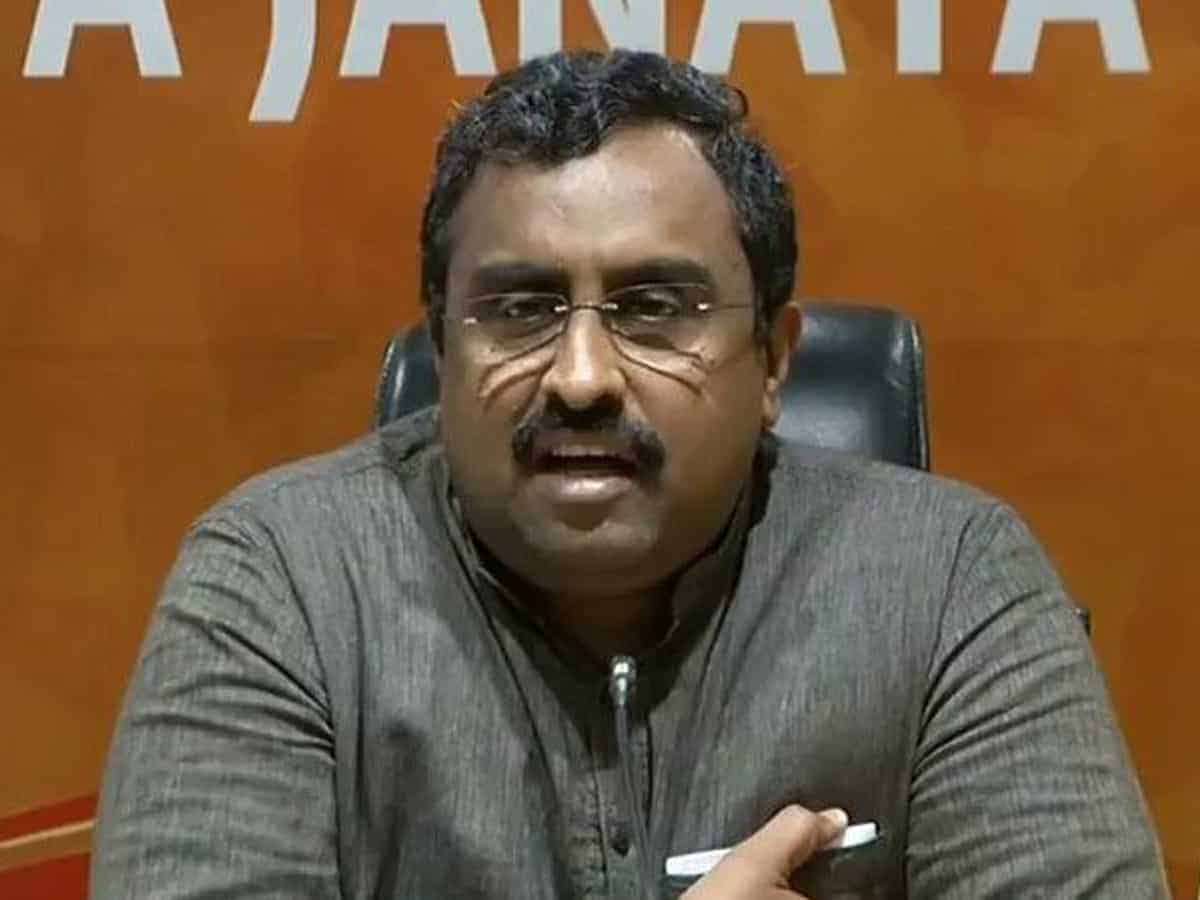New Delhi: National General Secretary Ram Madhav is one of the BJP’s high-profile faces. Since becoming the spokesperson of the Rashtriya Swayamsevak Sangh in 2003, he has subsequently been in the news not only in the country but also in the international media as the face of the saffron party.
At that time, he was also known as something of a global ambassador of the RSS. After spending a long time in the RSS, he was appoited National General Secretary in the BJP in 2014. Since then, he has overseen party activities in from Jammu & Kashmir to northeast affairs. He is a key strategist who played an important role in BJP’s outreach in the northeast.
It is a result of his efforts that many states in the northeast where BJP did not have a presence, today have BJP governments. Madhav, 56, a native of Andhra Pradesh, had an engineering education before becoming an RSS ‘pracharak’.
In a special interview to IANS on Friday, Madhav spoke openly on issues ranging from Jammu & Kashmir to the China border issue and Nepal.
Madhav, on the question of restoring full statehood to Jammu & Kashmir, said that his party supports it. He said, “BJP’s Jammu & Kashmir unit is of the opinion that statehood should be given back when the time is favourable. We want J&K to be restored to a full state’s status. Home Minister Amit Shah himself said while granting UT status that work would be done to get full statehood back very soon. The Assembly is yet to be constituted and delimitation for UT is pending.”
On the question of restarting political activity in the valley, he said that most of the detained leaders have been released. Madhav said, “BJP wants all leaders to act as bridges between administration and public by participating in political activities, but all big leaders of PDP, National Conference, Congress are sitting inside their houses. Congress leaders are not even arrested so they should answer why they are not taking part in political activities. Political activity will start when Assembly elections are held.”
On the question related to the fear of homecoming among the Kashmiri Pandits after the recent murder of sarpanch Ajay Pandita, Madhav said that the Home Ministry is looking into the entire matter. He said, “Unless we are able to guarantee both security and respect there, it will not be possible for the Kashmiri Pandits to go back to the Valley. Only the formation of colonies cannot lead to the return of the Pandits.”
On the question of why the BJP formed the government in J&K with the PDP, Madhav said that if the BJP had not formed the government, the Assembly election would have had to be held again. However, there were some benefits and some disadvantages of forming a government with the PDP. The government fell three years later after the BJP withdrew support.
Madhav said that after the removal of Article 370 from Jammu & Kashmir, there was very little opposition from the public. He said the people have realised that due to Article 370, the personal prosperity of the Kashmiri leaders only increased, but the public did not benefit. Now the public’s attitude is looking positive.
Veteran Hurriyat leader Syed Ali Shah Geelani’s resignation was described by Madhav as the result of Hurriyat’s internal politics. He said that Geelani’s resignation will not be able to cover up his political misdeeds of the last 30 years as thousands of youths died in the valley for which Geelani is responsible.
Madhav also spoke on the issue of China. He said that China has an old habit of land grabbing, but the Modi government has given a befitting reply in the last 5 years. After all, what is the solution to the border dispute with China? On this question, Madhav said that the government is working on two fronts in particular.
Emphasis is being laid on proactive diplomacy and strong ground positioning. While there are talks on the military and diplomatic level, the government is also committed to protect every inch of our land. Every possible step is being taken to ensure that the Galwan Valley incident does not recur again.
Madhav said that since the formation of the Modi government, India has been strict regarding the border policy. Regarding the 2017 Doklam incident and the recent Galwan Valley incident, he said, “China was also surprised by our strength in Doklam. China was then trying to get closer to the Chicken’s Neck area, but India gave a befitting reply, and the plot was not allowed to succeed. China wanted us to remove our army, but the Modi government had made it clear that the army would not withdraw until China removed the construction near the border.”
Madhav said that this time also when China tried to enter into LAC, they were physically stopped. It also used rods and stones. “Unfortunately, 20 of our soldiers were martyred. But India has sent a message to China that we will not allow China’s move to occupy the border quietly.”
Why has the friendly country Nepal stood up against India? On this question, Madhav said that even today Nepal may be making some anti-India statements, but this will not affect relations between the two countries.
Although this is not the first time, as such incidents have happened many times since the days of the monarchy in Nepal. He said, “When the king was ruling in Nepal, he used to oppose Nehru. On the basis of past and present experiences, I can say that much of the reason for Nepal’s opposition to India is internal. When there is an internal problem if it happens, then the government there feels it can target India. “
But the BJP general secretary made it clear that relations between India and Nepal will remain as strong as ever.

